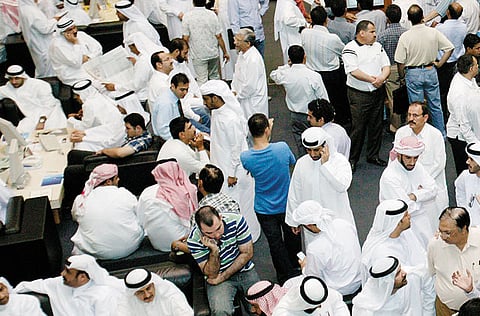Unique dialect can tell one's nationality
Some words set the GCC apart from other Arab nations

Dubai: The Arabic spoken in the Gulf is called Al Arabiah Al Khalijiah. It is spoken by people of the Gulf Cooperation Council (GCC) countries and has a close resemblance to Iraqi and Yemeni dialects.
This dialect is accepted as the dialect of the Gulf countries like the UAE, Oman, Saudi Arabia, Qatar, Bahrain and Kuwait.
Every country has its own unique dialect and the nationality of the speaker can easily be recognised by the dialect.
The dialects however derive from their comprehensive original source that is spoken in the Gulf known as Khaliji dialect known in Arabic as Al Lahjah Al Khalijiah.
These dialects are not written, they are just commonly used in everyday life and in general totally understood by all GCC nationals as well as the rest of the Arab countries, except for some words and phrases that remain ambiguous.
Those ususally need to be repeated to be understood and sometimes need to be replaced with more commonly-used words.
Subtle differences
In Abu Dhabi, Dubai, Sharjah, Ras Al Khaimah, Ajman, Fujairah and Umm Al Quwain there are subtle differences in some phrases and pronunciation of certain words.
The Bedouin dialect on the other hand is a bit complicated and often not understood by a few of the locals especially if it's spoken fast because of the intonation.
Emirati dialect is spoken in everyday life, it's simple and clear and easy to learn and remember.
For example, "thanks" is "Shukran" in Arabic but in Emirati dialect it is "Mashkoor" when addressing a man and "Mashkourah" for a woman.
"Why" is "Laish" or "Chaih" or "Shuhaqqah". In the Emirati dialect the letter K is pronounced Ch.
For example, in Classic Arabic "How" is "Kaif", but in Emirati dialect it is "Chaif".
Meaning: Common words, phrases in the Emirati dialect
Arrogant - Bazian for man and Bazianeh for woman (this word is normally not understood by all Emiratis because it's originally derived from Bedouin dialect. And when you say it to some Emiratis they might ask you what you mean).
Out - Khari, this word is also not understandable by the rest of the Gulf countries. Only some Emiratis use it.
Teapot - Ghouri
Sign up for the Daily Briefing
Get the latest news and updates straight to your inbox

